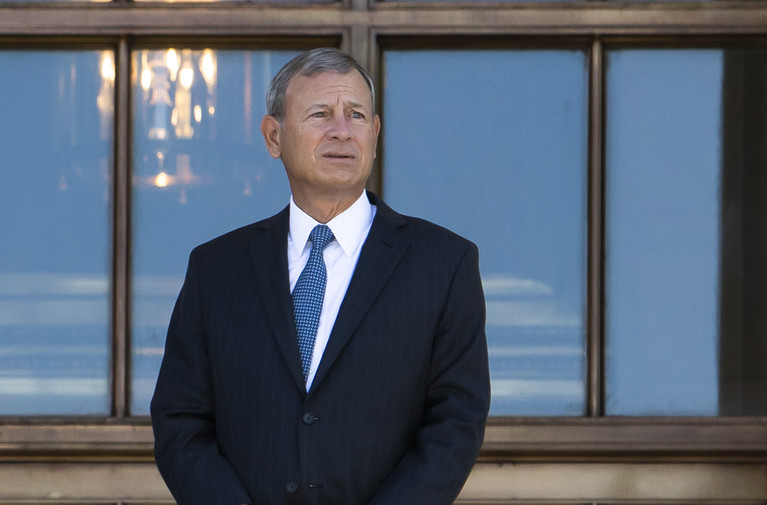Chief Justice Allows Trump to Temporarily Remove FTC Commissioner: A Deepening Battle Over Presidential Power
In a significant move, Chief Justice John Roberts has granted President Donald Trump temporary authority to remove a Federal Trade Commission (FTC) commissioner, escalating a legal and political clash over the extent of presidential control over independent agencies. The decision, issued on September 8, 2025, centers on the ousting of Democratic FTC Commissioner Rebecca Kelly Slaughter, spotlighting tensions between executive power and statutory protections. As this case reverberates through Washington, it raises critical questions about the autonomy of federal agencies. Here’s a detailed look at the ruling, its context, and what’s next.
Trending: Trump’s Push to Reshape Federal Agencies Sparks Debate
The ruling has ignited discussions on platforms like X, with hashtags like #TrumpFTC and #SupremeCourt trending. Posts reflect polarized sentiments, with some users, like @PatriotVoice22, praising the move as “Trump taking back control from unelected bureaucrats,” while others, like @DCWatchdog, warn, “This sets a dangerous precedent for agency independence.” The controversy taps into broader concerns about the balance of power in Trump’s second term, especially as he targets other agencies like the National Labor Relations Board.
Key Details of the Ruling
On September 8, 2025, Chief Justice John Roberts issued an administrative stay, allowing President Trump to temporarily remove Rebecca Kelly Slaughter from her role as an FTC commissioner. The decision pauses a lower court order that had reinstated Slaughter after Trump fired her in March 2025, alongside another Democratic commissioner, Alvaro Bedoya. The FTC, which enforces antitrust and consumer protection laws, operates with five commissioners serving seven-year terms, with no more than three from the same party. Slaughter, appointed by Trump in 2018 and reappointed by President Joe Biden in 2024, has four years left in her term.
The Trump administration argued that the FTC falls under presidential control, citing Article II of the Constitution and asserting that commissioners can be removed without cause. This stance challenges a 1935 Supreme Court precedent, Humphrey’s Executor v. United States, which upheld limits on presidential power to fire FTC commissioners except for reasons like inefficiency, neglect of duty, or malfeasance. Lower courts, including a federal district court in July 2025 and the U.S. Court of Appeals for the D.C. Circuit, had ruled in Slaughter’s favor, citing this precedent. Roberts’ stay, issued without explanation, gives the Supreme Court more time to review Trump’s emergency appeal, with Slaughter’s legal team ordered to respond by September 15.
Voices from the Case
Rebecca Slaughter, responding to the ruling, told CNN, “I respect the court’s decision and intend to see this case through to the end. In the week I was back at the FTC, it became clear we desperately need the transparency and accountability Congress intended for bipartisan independent agencies.” Her statement underscores the broader stakes for agency independence.
The Justice Department, representing the Trump administration, argued in filings that “the modern FTC exercises far more substantial powers than the 1935 FTC,” justifying broader presidential authority to remove commissioners. Legal analyst Amy Howe of SCOTUSblog noted on X, “This stay doesn’t signal the final outcome, but it’s a win for Trump for now as the court weighs in on his push to control agencies.”
Background: A Pattern of Power Plays
The FTC case is part of a broader effort by Trump to assert control over independent federal agencies. Since retaking office, he has fired members of the National Labor Relations Board, Equal Employment Opportunity Commission, and Merit Systems Protection Board, moves the Supreme Court has largely permitted despite lower court objections. These actions challenge the Humphrey’s Executor precedent, which protected agency leaders from arbitrary dismissal to ensure insulation from political pressure.
The FTC, established in 1914, is designed to operate with bipartisan balance, with staggered seven-year terms to prevent any single president from dominating its leadership. Trump’s firing of Slaughter and Bedoya in March 2025 left the FTC with only two Republican commissioners, Andrew Ferguson and Melissa Holyoak, potentially hampering its ability to enforce consumer protection and antitrust laws. The administration’s legal arguments hinge on recent Supreme Court rulings, like a May 2025 decision affirming the president’s wide latitude to remove officials wielding executive power.
Impact and Next Steps
Roberts’ stay is a temporary victory for Trump, allowing him to keep Slaughter off the FTC until the Supreme Court resolves the emergency appeal. The court’s final decision could redefine the balance between presidential authority and agency independence, potentially overturning or narrowing Humphrey’s Executor. If the court sides with Trump, it could enable him to reshape other agencies, though it has signaled limits, notably protecting the Federal Reserve as a “quasi-private entity.”
For Slaughter, the fight continues. Her lawsuit will proceed, with the Supreme Court likely to decide whether to take up the case on its merits. A Supreme Court hearing could occur in late 2025 or early 2026, potentially alongside similar cases involving other agencies. The outcome could affect the FTC’s ability to function effectively, especially with only two active commissioners, as it requires a quorum to take major actions.
Publicly, the ruling may deepen divisions over Trump’s leadership style, with supporters viewing it as a necessary assertion of executive power and critics warning of eroded checks and balances. Investors and businesses, particularly in tech and consumer sectors under FTC scrutiny, should watch closely, as changes in the commission’s makeup could influence regulatory priorities.
Conclusion: A Pivotal Moment for Agency Independence
Chief Justice Roberts’ decision to allow Trump to temporarily remove FTC Commissioner Rebecca Slaughter marks a critical juncture in the ongoing struggle over presidential power. As the Supreme Court prepares to weigh Trump’s broader challenge to agency autonomy, the outcome will shape the future of independent regulation in the U.S. For now, readers should take away the importance of understanding the delicate balance between executive authority and institutional independence—a balance that could define governance for years to come.
